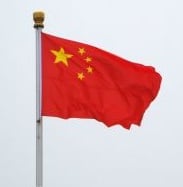 |
| Tu Youyou |
China's decades-long quest to have its sciences recognized by international bodies got a huge boost this week with the awarding of a Nobel Prize in physiology or medicine to Chinese researcher Tu Youyou for developing an antimalarial medicine derived from an ancient remedy.
But problems remain for China's scientists and researchers caught in a quality-versus-quantity trap as the country tries to elevate its science on the world stage.
Tu was part of a team originally set up by China's military in 1969 to find antimalarial drugs. The search included ancient texts, and the use of herbal and folk remedies to compile hundreds of treatments before settling on what became known as artemisinin derived from sweet wormwood that was described in a 4th century text and that proved effective in treating malaria, according to an Associated Press report.
China's FDA was quick to congratulate Tu, saying in a statement that her work was "an important contribution to saving millions of lives of millions of malarial patients."
China's Premier, Li Keqiang, also weighed in, calling Tu's Nobel win the "embodiment" of the "progress of Chinese science and technology" and saying it showed that Chinese traditional medicine could make a "significant contribution" to human health, according to a statement on the China FDA website.
 Tu is the first Chinese citizen to win a Nobel in the sciences, an area the country has long coveted. China's years of upheaval and political instability as well as a lack of funding have often hampered the country's efforts to win the recognition it feels it deserves.
Tu is the first Chinese citizen to win a Nobel in the sciences, an area the country has long coveted. China's years of upheaval and political instability as well as a lack of funding have often hampered the country's efforts to win the recognition it feels it deserves.
Many attribute the problem for Chinese scientists in winning overseas accolades to the poor quality of Chinese scientific journals and the fact that many scientists are judged not on the quality of their research but on the number of times their names and research articles appear in either domestic or international publications, according to Peer Review Watch, which is published by the City University of London.
The problem is compounded by the fact that articles and entire publications are not translated into English and also by the fact that Chinese researchers are accustomed to being paid bonuses for publishing or pursuing popular research subjects and if those bonuses are not paid, they simply don't publish their findings.
The problem is further worsened by fake peer reviews as outlined in a Washington Post article earlier this year, which detailed the retraction of more than 40 academic articles, the majority of which were said to be written in China. That was followed by another publisher who had to retract more than 60 articles because of fake peer reviews, according to the Wall Street Journal.
- here's the AP story
- and one from the New York Times, one from Peer Review Watch, one from the Washington Post and one from the WSJ
- here's a statement from CFDA and congratulations from Chinese premier Li Keqiang (Chinese language)